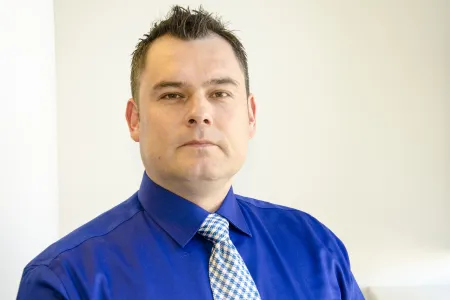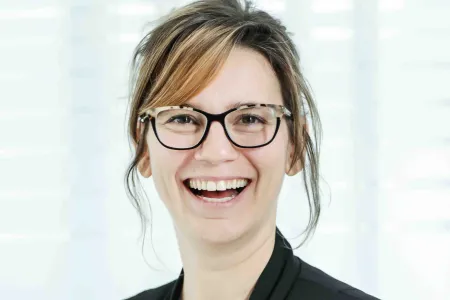Displaying results 351 - 360 of 1030

Cecilia Benoit: Unlinking Prostitution and Sex Trafficking: Response to Commentaries
2018 Fellow Cecilia Benoit recently co-published an article titled “Unlinking Prostitution and Sex Trafficking: Response to Commentaries” in Archives of Sexual Behavior.
The official publication of the International Academy of Sex Research is dedicated to the dissemination of information in the field of sexual science, broadly defined.
The full article is available here (access limited to subscribers of the journal).
The official publication of the International Academy of Sex Research is dedicated to the dissemination of information in the field of sexual science, broadly defined.
The full article is available here (access limited to subscribers of the journal).

Steven Hoffman: Tobacco control interventions
2012 Pierre Elliott Trudeau Foundation Scholar Steven Hoffman published in the British Medical Journal (BMJ) a study which focuses on cigarette consumption estimates for 71 countries from 1970 to 2015: systematic collection of comparable data to facilitate quasi-experimental evaluations of national and global tobacco control interventions.
Using the data from this study, a second study was published measuring the impact of the WHO Framework Convention on Tobacco Control (FCTC) treaty mechanism.
We believe these studies now represent the most rigorous impact evaluation of an international law ever conducted – which will hopefully set a new benchmark for how such evaluations are conducted in the future by us and others.
Steven Hoffman completed a PhD in Health Policy at Harvard University where he researched how global regulatory strategies can be designed to better address transnational health threats, social inequalities and human rights challenges.
He is currently Scientific Director at the CIHR Institute of Population & Public Health and Professor of Global Health, Law, and Political Science at York University.
Using the data from this study, a second study was published measuring the impact of the WHO Framework Convention on Tobacco Control (FCTC) treaty mechanism.
We believe these studies now represent the most rigorous impact evaluation of an international law ever conducted – which will hopefully set a new benchmark for how such evaluations are conducted in the future by us and others.
Steven Hoffman completed a PhD in Health Policy at Harvard University where he researched how global regulatory strategies can be designed to better address transnational health threats, social inequalities and human rights challenges.
He is currently Scientific Director at the CIHR Institute of Population & Public Health and Professor of Global Health, Law, and Political Science at York University.

Daniel Del Gobbo: Queer Dispute Resolution
2017 Scholar Daniel Del Gobbo has published a new article that explores queer theory and the ethical implications of reframing the bearer of interests as a bearer of desires. It is entitled Queer Dispute Resolution, and is published in the Journal of Conflict Resolution. You can read the complete article here.
Daniel Del Gobbo is a doctoral student, litigation lawyer, and law teacher whose work is driven by the need to expose the ways that power and privilege are distributed unequally in our society, often along gender- and sexuality-based lines, through legal processes.
Daniel Del Gobbo is a doctoral student, litigation lawyer, and law teacher whose work is driven by the need to expose the ways that power and privilege are distributed unequally in our society, often along gender- and sexuality-based lines, through legal processes.

Jeremy Schmidt : the moral consequences of humanity’s impacts on the planet
Jeremy Schmidt, 2009 Scholar and Assistant Professor of Geography at Durham University, has published a new article on the moral consequences of humanity's impacts on the planet.
Engaging a wide array of leading theories about how to make sense of humanity's bewildering changes and how the Earth system functions, Dr. Schmidt argues that it is imperative to consider the political and economic conditions that beset contemporary practices of planetary stewardship and their growing influence on new approaches to sustainable development.
The article [is freely available here,](https://rgs-ibg.onlinelibrary.wiley.com/doi/full/10.1111/tran.12308) and as a [permanent read-only file here](https://rdcu.be/bw0VI).
Engaging a wide array of leading theories about how to make sense of humanity's bewildering changes and how the Earth system functions, Dr. Schmidt argues that it is imperative to consider the political and economic conditions that beset contemporary practices of planetary stewardship and their growing influence on new approaches to sustainable development.
The article [is freely available here,](https://rgs-ibg.onlinelibrary.wiley.com/doi/full/10.1111/tran.12308) and as a [permanent read-only file here](https://rdcu.be/bw0VI).

Marie-Eve Desroches: intersectionality and the ethics of care
2016 Scholar Marie-Eve Desroches recently published an article in the journal Éthique Publique.
The article on intersectionality and the ethics of care addresses housing interventions for vulnerable populations in terms of providing effective means of addressing health inequalities.
Marie-Eve Desroches is a PhD student in Urban Studies at the National Institute of Scientific Research (INRS).
The article on intersectionality and the ethics of care addresses housing interventions for vulnerable populations in terms of providing effective means of addressing health inequalities.
Marie-Eve Desroches is a PhD student in Urban Studies at the National Institute of Scientific Research (INRS).

Milad Parpouchi: Integrating food security and shelter for people in need
The April 2019 issue of the American Journal of Public Health features an editorial co-authored by Milad Parpouchi, 2017 Scholar, and Julian M. Somers. The editorial addresses the lack of food security among residents in permanent supportive housing, arguing that long-term research is needed on this issue.
Titled “Beyond Housing for Homeless People, It Is Crucial to Remediate Food Insecurity”, the editorial is available here (access limited to subscribers of the journal).
Titled “Beyond Housing for Homeless People, It Is Crucial to Remediate Food Insecurity”, the editorial is available here (access limited to subscribers of the journal).

Jesse Thistle: Learning from one’s hardships
In The Walrus, 2016 Scholar Jesse Thistle shares his touching account of the valuable teachings he learned from experiencing homelessness and spending cold nights forced to sleep in his friend’s car in 1997. He tells of how a Métis-Cree Elder helped him change his perspective on those difficult days.
You can listen to Thistle’s talk or read it here.
You can listen to Thistle’s talk or read it here.

Marie-Soleil L’Allier in Québec Science magazine
Québec Science magazine recently featured the work and pursuits of our 2018 Scholar Marie-Soleil L'Allier, a doctoral candidate at UQAM and co-founder of the LOCO zero-waste food store chain, which is the first of its kind in Quebec.
The article (in French) is available here.
The article (in French) is available here.

Pierre Cloutier de Repentigny : Critical Reflections on Canada’s Aquaculture Regulations
Pierre Cloutier de Repentigny, 2017 Foundation Scholar, co-authored an article on Canadian aquaculture regulation, which was published in Ottawa Law Review.
It lays out key issues posed by industrialized aquaculture and argues that moving the “production” of seafood from marine fisheries to aquaculture merely shifts the source of damage done to the environment.
The article is available in open access here.
It lays out key issues posed by industrialized aquaculture and argues that moving the “production” of seafood from marine fisheries to aquaculture merely shifts the source of damage done to the environment.
The article is available in open access here.

Jocelyn Letourneau: contributor to Teaching and learning the difficult past
2006 Fellow Jocelyn Létourneau is one of the contributors to Teaching and Learning the Difficult Past: Comparative Perspectives (also listed under the title History and Social Studies Education in a Context of Intolerance: Imagined Communities and Collective Memory, Routledge, 2019).
The chapter by Létourneau is entitled “ ‘We’ve been screwed’: Quebecers and their past”, and discusses Quebecers' relationship with their own past, and how to teach young people about the history of their province.
The chapter by Létourneau is entitled “ ‘We’ve been screwed’: Quebecers and their past”, and discusses Quebecers' relationship with their own past, and how to teach young people about the history of their province.

